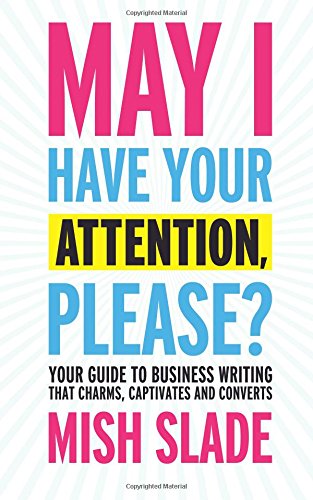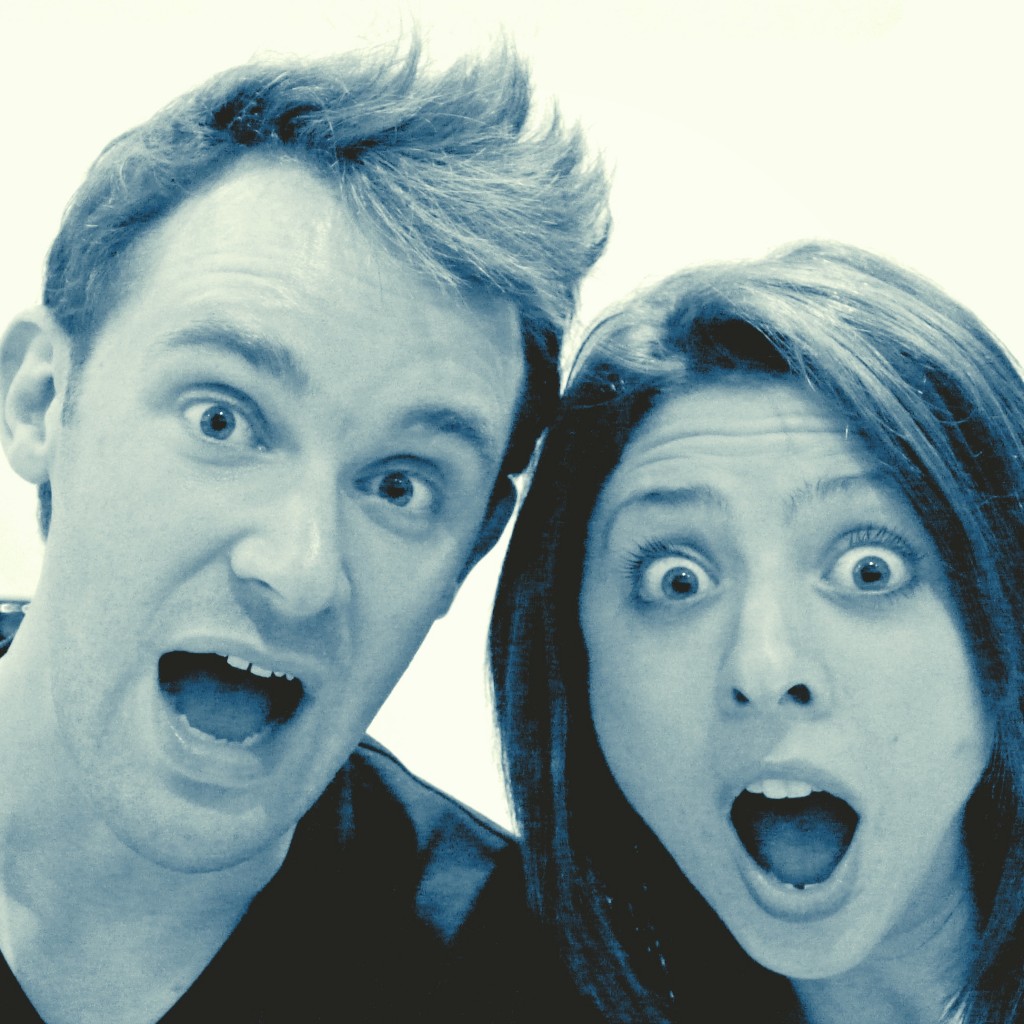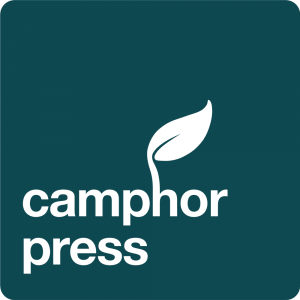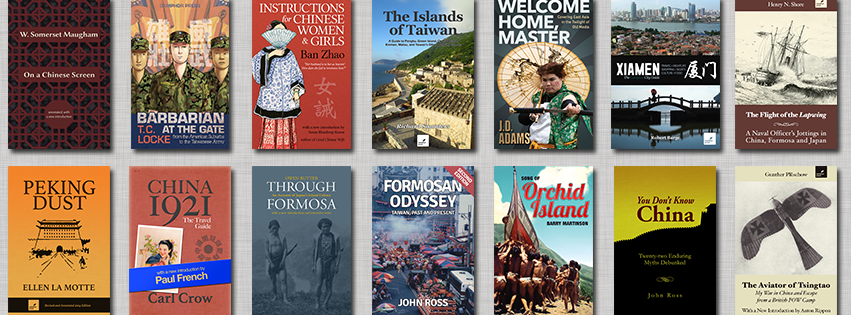Today we feature inventor, author and entrepreneur Celia Gates, who I met in 2011 at the British Invention Show in London. She tells us all about her journey of setting up her cookware company “Doctor Cook” and what other projects she’s been involved in since then.
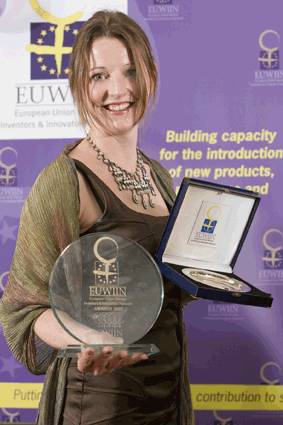
Tell us about your book “From Brainwave To Business”? Could you summarise the best tips?
From Brainwave to Business is the book I wished I’d read when I started out with my cookware invention – Doctor Cook. I reckon I could have saved about £94,000 in costly mistakes had I known what I learnt along the way. The book shares these lessons. It is a start up guide for innovators and creative entrepreneurs. Key points include; not underestimating your competition, developing your market in line with your ideas and evolving yourself as the aim of your success. Originally the book was called From Inventor to Entrepreneur. It is about the journey from being the person with just an idea to the person who makes money from their concepts. Concentrate on developing your ‘self’ to build a business and profit from your products.
What would you advise people who want to publish a book?
The publishing industry has changed dramatically since 2012 when “From Brainwave To Business” was published as part of the Financial Times Series by Pearsons Prentice Hall. I approached the publisher directly with a clear book proposal and the majority of the script. They told me to find a celebrity forward and they’d publish it. The deal was done quite quickly but I don’t believe this is the norm.
If you want to publish a book then you must first ask yourself why. Why do you want to publish your book? If it’s to share your story with a wider world and build relationships with your readers then self-publishing is an accessible and immediate way forward. If it’s to establish credibility then collaborating with reputable publishers may enhance this. If it’s to make money then you should see your book as one string in your ‘Profit Parachute’ and build multiple ‘strings’ to ensure a safe landing from the leap of faith you’ll invariably take. If it’s to make sense of your own experience then write quickly and pour it all out onto the page. Inevitably you’ll end up re-writing whatever you first write so see the initial draft as a prototype and get it done as quick as you can – otherwise you’ll lose the momentum from your inspiration and it will be quite hard to pick back up and start writing again.
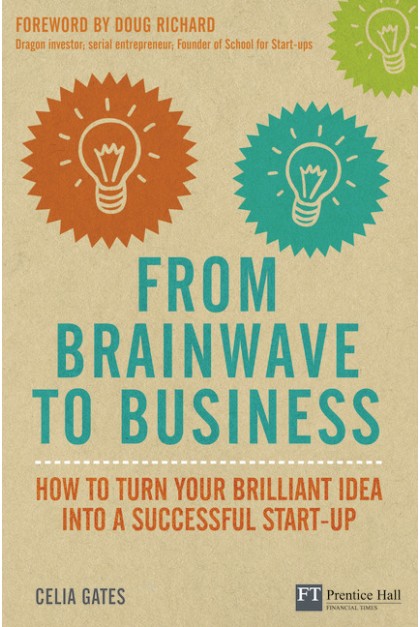
Tell us about your Doctor Cook saucepans! Are you still involved in this company?
Doctor Cook was my leap of faith. I believed in the concept. Cookware had always had long straight handles forcing the user to awkwardly bend their wrist to hold a pan. My background in Industrial Design meant I knew this was not ergonomic. Watching my Granny struggling to lift a hot and heavy pan inspired me into action; ‘bend the pan and not the man’. Saucepans with curved handles were born and at the beginning they very much felt like my babies. Now they have ‘fled the nest’ and taken on a life of their own. I still hold intellectual property but other people make and distribute them.

What are your best inventions?
The ones that are yet to come!
How do you judge a great idea? One of my favourite inventions is a solar cooker from a cardboard box that inspired a wave of similar products in Malaysia. The concept of turning packaging into a socially responsible bi-product that was as valuable (or more valuable) than the product it protected, appealed to me.
I love, love, love my current ‘invention’ – the Whether™ forecast – a lateral and literal thinking tool that helps other people to stimulate sparks of genius and come up with inventive ideas. We are all so much smarter than we think and (in my opinion) our mindset – or the way we think and work together, is one of the greatest challenges we face in the western world. The best inventions are always born as solutions to genuine problems. Mental health – or the lack of, is certainly a growing concern. Plus, I love seeing the light come back into a person’s eyes once they’ve gained enough perspective to solve their own conundrum. This is what Whether™ does.
Do you consider yourself an inventor or an entrepreneur?
An ‘Inventor’ paints the picture of an obsessive scientist secluded in a shed somewhere whilst an ‘Entrepreneur’ is the hotshot, outward focused, energetic, well connected business builder. You can decide. I’m just me, constructively learning, challenging myself (and conventions) relentlessly, failing freely, succeeding regularly and revelling in a life that I take responsibility for. If Entrepreneurs make money then Inventors spend it. In this context I’m an Inventive Entrepreneur!
What are you currently doing?
I love what I am doing. I’m maximising minds that make a difference. In other words I’m bringing brains together for creative and constructive collaboration, conflict resolution and greater growth. It is both rewarding and thrilling and I get to travel the world. I help other people design lives they want to lead and as I approach 40 this feels like it is exactly what I was designed to do. There is a lot to build on too. The face of education is shifting. Collaborating constructively is critical and there is a long way to go before we’ve optimised the use of our amazing minds. I find it a fascinating field of study. If inventions have got us into a mess then, inventions will get us back out of it. So, I’m currently facilitating fresh thinking and empowering others to broaden their perspective and evolve ingenious ideas.
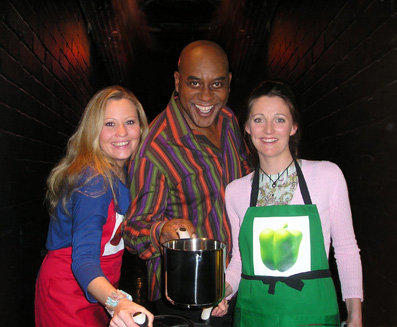
What inspired you to start this business?
More than inspiration is was a natural evolution. If writing From Brainwave To Business made sense of my experience developing Doctor Cook then, developing Doctor Cook as a business showed me what I’m really good at and what I love to do. When you know what this is, do more of it! In this guise Whether.to and theGlobalBrainstorm.com are evolutions in action – or learn-as-you-grow vehicles to deliver inspiration and information to a wider world.
What is your daily routine?
People often asked this question and I’m not going to tell you that I get up at 5am, go for a run, drink Misu soup and drum positive affirmations into my mind before most people are out of bed. My life is much more varied than that. Sometimes I’m up until 2am working online with clients from around the world, other times I’m in bed by 10 pm and off to see people face-to-face first thing. It’s the lack of routine that makes my life exciting. On the whole and if I’m not delivering workshops, I’ll get up and start writing or working on my own stuff way before I check emails, the news or social media. This stops me being distracted or influenced before I’m fully focused on how I feel and what I need to get done that day. Yoga happens daily and sea swims when the weather allows. Exercise of any kind has always been important as I get restless if I sit for too long. I also meditate and can combine this with my yoga if I’m short on time. More interesting for you is that I hold weekly meetings with myself whereby I define my targets, design my direction and account for the past week’s action. This is quite a formal process I’ve come to rely on through tough times.
What would you recommend new entrepreneurs? How to get started?
As well as all the usual advice; take action, go for it, just do it, believe in yourself etc. there is one key bit of advice: know your numbers. As innovators and inventors we’re not always keen on the accountability of our actions (largely because we’re spending money we’d rather not be worrying about and the worry stops us thinking inventively). When we’re stressed or scared parts of our brain actually prevent us from thinking as critically and creatively as we’re capable. Effectively our brains let us down when we need them the most. To avoid this situation and as a priority to any new business venture you must attach what I call a ‘life line’ to your Profit Parachute. Know the bare minimum money you need to keep the bailiffs at bay and secure this income stream. Whether pulling pints after hours, working a part-time job until your business starts to make money or establishing a repeat relationship with an initial client that you can rely on, know how you’re covering your basic bills and putting food on the table. This will give you the peace of mind you need to make your business prosper.
Oh… and of course, read From Brainwave to Business!
Above all don’t go looking for your passion, look for problems to solve as these are often easier to find. As you solve a problem your passion will become apparent to you. As you discover what you love to do, do more of it. The biggest investment you’ll make in anything is that of your precious time.
Thanks for taking the time to read this and do reach out if you think I can be of help to you!
To learn more about Celia Gates please visit http://celiagates.com/ and http://whether.to/you-think/ (Whether tool eBook)

